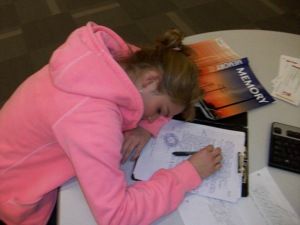News
Air in Danish classrooms unsafe
This article is more than 9 years old.
Study reveals up to four times too much CO2 in some classrooms

Hard to stay awake when one cannot breathe (photo: Psy3330)
Since the school reforms were introduced in August 2014, students and teachers in Denmark spend more time in classrooms than ever.
Unfortunately, a study from DTU has revealed that the environment in many classrooms leaves much to be desired.
In up to 60 percent of the classrooms the concentration of CO2 was higher than established limits. Concentrations were especially bad in the many Danish schools without a mechanical ventilation system. In some places, CO2 concentrations were nearly 80 percent above what is allowed.
Can’t breathe, can’t think
The indoor environment is important because children’s learning and concentration abilities drop when exposed to bad air.
“If you do only one thing to create a better indoor environment for children, it should be recirculating the air,” Jørn Toftum, an associate professor of indoor environment at DTU who helped conduct the study, told DR Nyheder.
“About 40 percent of schools have no mechanical ventilation – we found CO2 concentrations as high as 4,000 ppm in some of those places,” said Toftum.
READ MORE: Danish classrooms getting more and more crammed
The recommended exposure limit is 1,000 ppm.










































